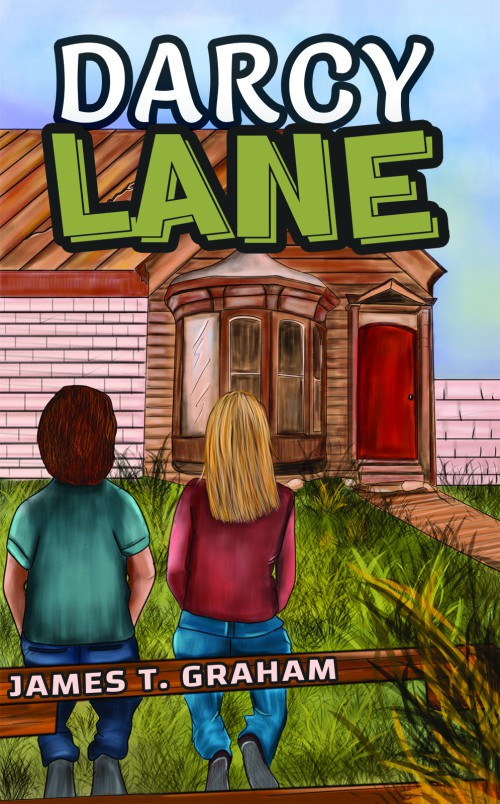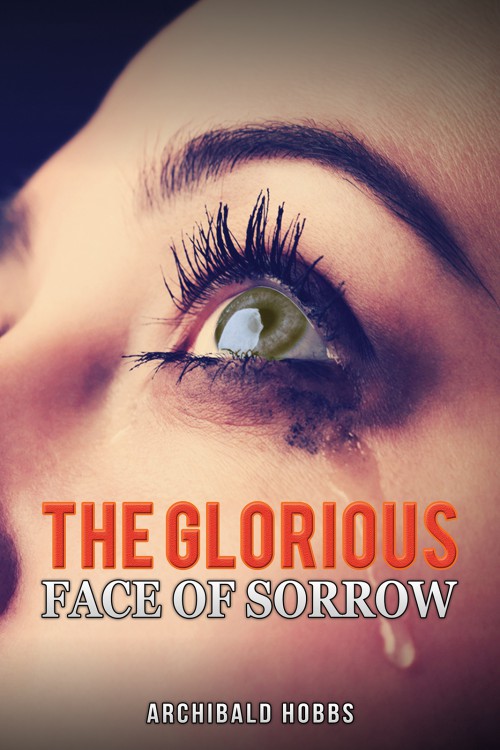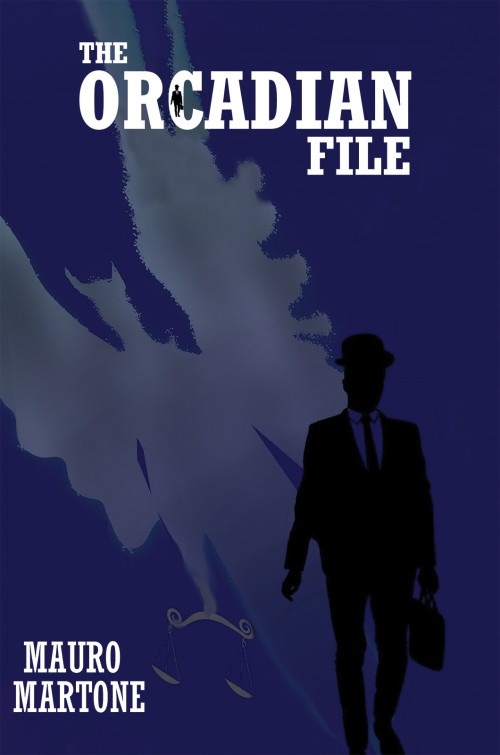-
I really enjoyed reading this book, from the relationships between the characters to the sensitive way issues surrounding mental health were written about. I was disappointed to find that this is the author’s first novel, as I was looking forward to catching up on some of his other books! Will now have to wait for him to publish the next one, which will hopefully be soon!
-
What an excellent book! A very well done to the author. I was on the edge of my chair throughout.
-
Darcy Lane, specifically the main character, Elise, had me hooked from the start, in my humble opinion the sign of a very talented writer. James T Graham drew me in with his sympathetic and sensitive account of Elise’s early life then seamlessly brought me to ‘present day’. I loved everything about Darcy Lane, the sensitivity and maturity shown in tackling some hard subjects, the sometimes ‘ordinariness’ of a young girls life, which was a bit of a balm and gave me hope for her. Yes, I was that involved in the story! It’s definitely a page-turner, and for me, a read twice (at least) book. I’m looking forward to the authors next publication
-
In this slice-of-life novella set in Lancashire, England, a young woman with a tragic past cultivates a dream of security and comfort that her destitute life seems unlikely to deliver.
Little Elise Rose is only 7 years old when she witnesses her mother Grace’s brutal murder at the hands of one of the many men who regularly bring trouble into their lives. This horrible night of violence cuts short Grace’s attempt at a new start in a low-income housing project, living under the protection of her father, Emmett, a shop owner who adores his daughter and granddaughter. It also sets Elise on a downward spiral that leads to her eventual commitment to a mental hospital for two years. She is 20 when she is deemed well enough to be released, “unsure if this was the start of something new or the continuation of something old and troublesome.” Returning to the home she shared with her grandfather, Elise teeters between the hope of a new life, symbolized by a snug cottage she sees on Darcy Lane at the end of a bus line, and the self-destructive habits that lead her back to the Phonebox, the alley bar frequented by her old associates. Two influences seek to tip the balance: her mother’s journal, left for her in hopes that Elise might profit from Grace’s mistakes, and Jack Clapham, a shady character who is likely to prove dangerous. Graham’s compact narrative is well crafted, evoking the pervasive hopelessness of working-class life, in which dead-end poverty leads all too often to crime and violence and people drift passively and repetitively into trouble. Hope appears in garden imagery, interwoven throughout the text in Grace’s and Elise’s “daisy blonde hair,” the ritual visit to the mental hospital’s garden before the latter’s release, and the peace and normality represented by the unattainable cottage on Darcy Lane. But Elise’s submissiveness is frustrating, and the work’s short length necessitates the underdevelopment of certain plot elements, such as the importance of Grace’s journal. Still, captivating snatches of phrases, like the description of Emmett as “a hunch of a man,” paint a vivid picture of the difficulty of life in an English housing project.
A bleak but eloquent portrait of a woman’s attempts to survive poverty and violence.
-
Elise Rose lives with her mother and one night whilst sitting on her bed reading, she hears raised voices. These noises pull her out of her room and so she witnesses a horrific and violent altercation between her mum and a drunk man.
Move forward and after a period away, Elise is now living with her grandad, while helping run his shop. You get the impression that Elise is very uncomfortable with her life and where she lives, and because of this, she stumbles across a house in Darcy Lane. She spends many hours thinking about the house, drawing pictures, and dreaming of all the improvements she would make if the house was hers.
Back in real life, Elise meets someone who has ties to the past and soon becomes entangled in his life. He gives her the means by which to improve her standing and fulfill her dreams. However, he is not all that he seems, and Elise learns this in a horrific manner. Life turns full circle for Elise, but by the end of the book, you feel that she is now settled and is hopeful for her future.
This is not the usual sort of book that I would read. However, I really enjoyed it and it gave me a few things to think about, even after I had read the final page.
-
Sometimes the only way to tackle complex, multi-faceted issues like mental health and domestic violence is to dive right in, a fact exemplified by James T. Graham’s DARCY LANE. At the impossibly young age of seven, Elise Rose’s life is forever altered when she witnesses the murder of her mother, Grace. While Elise and her mother were no strangers to hard times, this horrific act proves to be too much for the young girl. Irrevocably scarred, she spends the remainder of her adolescence in a self-destructive tailspin that eventually lands her in a mental institution. When she’s finally released at the age of twenty, Elise sets out to construct a new life upon the foundation of her damaged youth, a journey that eventually leads her past the lonely house at the end of Darcy Lane. What follows is a complicated, anything-but-linear tale of redemption, one where Elise struggles to outrun her past and the impossibly long shadow it casts over her present. With her mother’s journal serving as her only guide, Darcy attempts to navigate through the uncharted waters of adulthood.
Given the bubble font and the heavily stylized image adorning its cover, one might be tempted to dismiss Graham’s novella as merely another ‘Afterschool-Special’ masquerading as a YA romp. But make no mistake, the only moral to this story is that life is rarely fair. Regardless of whether or not you identify with Elise’s circumstances, readers will undoubtedly be able to appreciate the ever-present conflict she carries with her at all times, a testament to Graham’s skill as a writer. By wielding his vivid, hyper-descriptive prose with the measured accuracy of a seasoned pro, Graham side steps one traditional pitfall after another, and in the process, succeeds in crafting a novella that consistently defies its status as a debut work. The sheer emotional depth that Graham manages to mine is awe-inspiring, regardless of the feelings it inspires. In fact, the somber, bleak tone blanketing DARCY LANE might be this novella’s only flaw, as some readers may have difficulty finding any light at the end of Elise’s tunnel. Regardless, Graham’s talent is undeniable.
To that point, it’s tempting to chide DARCY LANE’s brevity (the book checks in at barely one hundred and thirty pages), but given the heaviness of the subject matter involved, Graham’s decision to present Elise’s story as a novella ultimately feels like an astute choice. Sure, the narrative is both simple and linear, but the fact that Graham opts to avoid embellishing Elise’s struggle with a canned subplot or forced romance only adds to the potency of her story. Add to that the provocative imagery and a cast of complicated characters driven by shrouded intentions, and you have a work that packs an impressive punch.
Mining the messiness of middle-class malaise to great effect, DARCY LANE is an impressively affecting examination of the deep and lasting impact that violence can have on a developing mind through the eyes of a character for who readers can’t help but cheer.
-
A beautifully written novella by James T. Graham, Darcy Lane tells the story of a girl who experiences a great deal of trauma and is trying to work her way through bad experiences and situations as they come knocking at her door. As a seven-year-old, Elise Rose sees her mother brutally attacked by a man in their flat. Elise goes to stay with her grandfather Emmett until she starts hallucinating and seeing her dead mother in the streets. At seventeen, Elise is committed to a mental hospital.
Most of the story occurs after Elise is released two years later when she is twenty years old. She has gone through therapy and must take medication to stave off the hallucinations. She goes back to stay with Emmett and meets her old friend Tom, a neighborhood boy she had gotten along with before she was sent away. Elise tries to figure out how to put her life back together but finds herself associating with the wrong crowd despite the warnings of Tom and another family friend. I found Elise to be very naive and stubborn, making unsmart decisions.
Darcy Lane is a wonderfully written story with very interesting characters. Elise tends to self-medicate herself with gin and the reader can feel her slowly slipping into the shoes of her troubled mother. It is, in fact, while Elise is a bit drunk that she stays on the bus to the end of the road and ends up at Darcy Lane where there is a little house that Elise imagines living in. This little house becomes her solace, her peaceful place she goes to when she wants time alone to think.
Elise finds herself being easily persuaded by those around her, and it seems that there is danger lurking around every corner. The novella progresses very quickly and I rather enjoyed the scenery, the characters, and how the story takes shape overall. I do feel that the ending is a bit abrupt and could have been written a bit differently. I found myself wanting to learn more about Elise’s fate as well as the fate of the other characters and so I am hoping for a Darcy Lane Part Two. I recommend this book to anyone who loves a long short story that will keep you engaged from cover to cover. An adventure that readers will want more of after finishing it.












